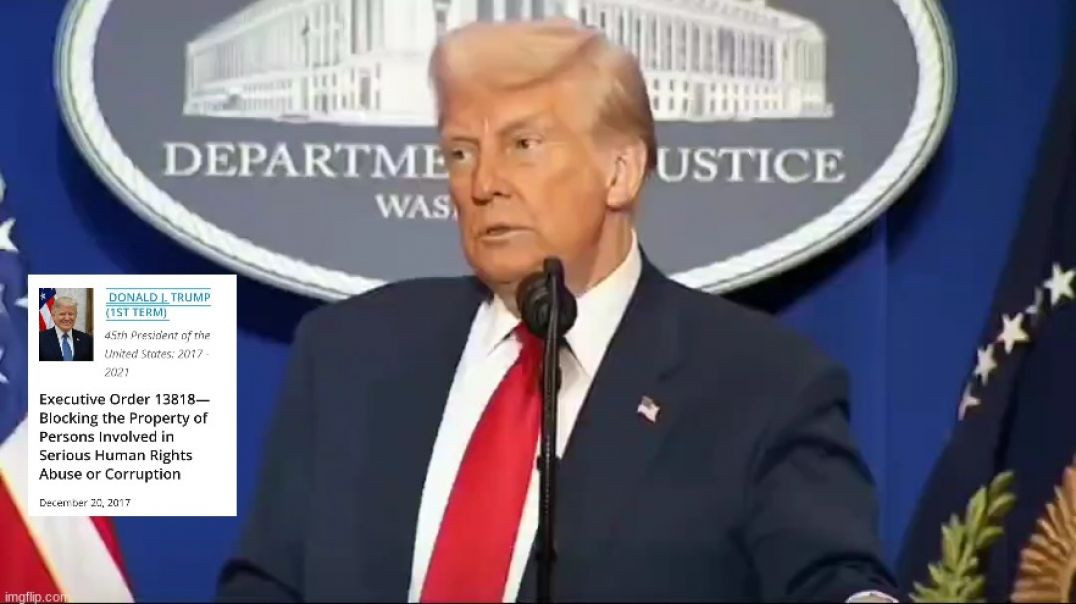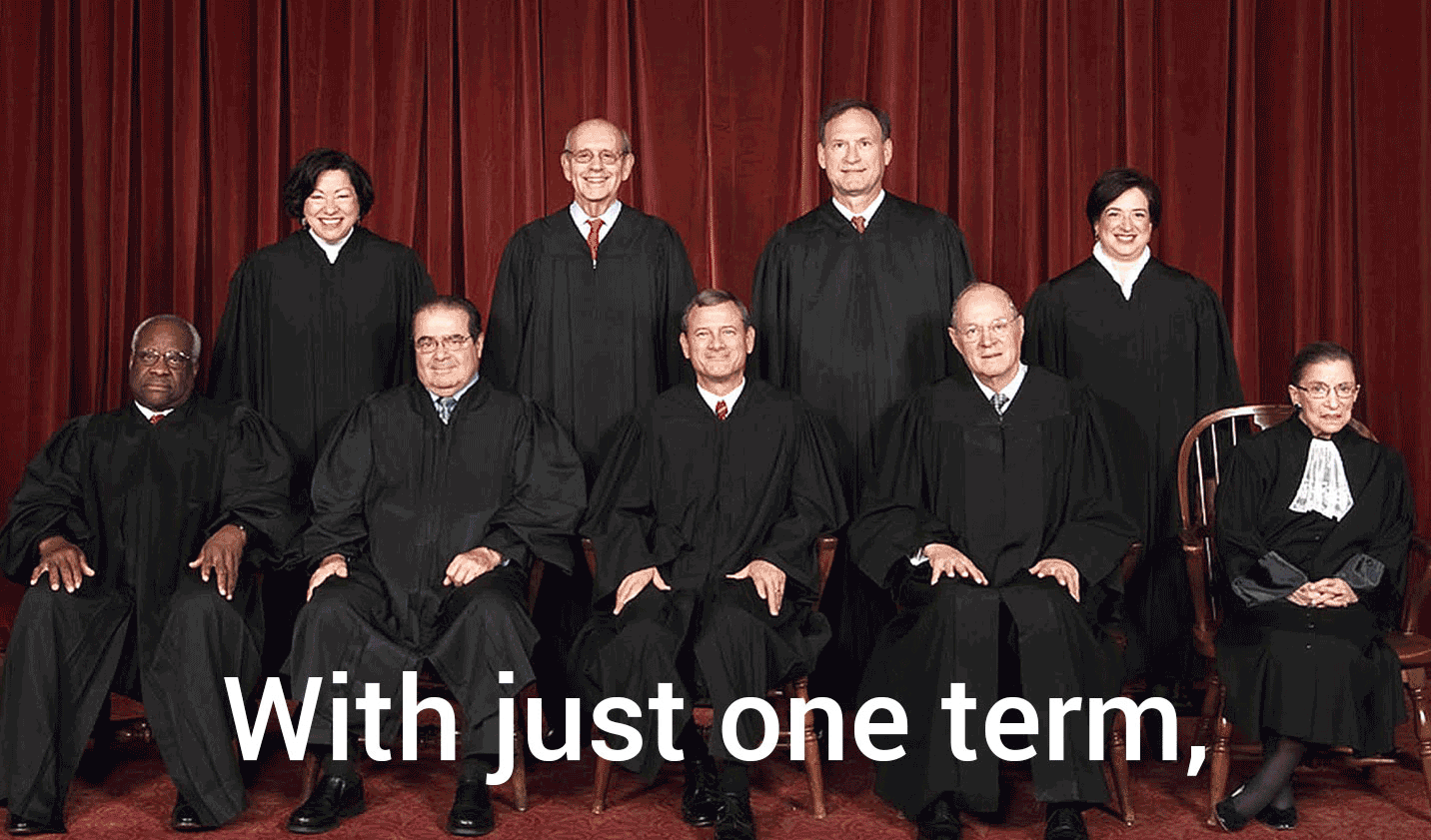Live streaming on Altcast.TV is now available!
CHEVRON DEFERENCE 🧑⚖ IS KAPUTSKI!
The Supreme Court in a 6-3 vote killed a legal precedent that conservatives have attacked for decades, known as the "Chevron deference".
"Today, the court places a tombstone on Chevron no one can miss," Justice Neil Gorsuch, one of the most conservative members wrote.
The deference, set in 1984 in a case involving the oil giant, gave federal agencies wide powers to interpret laws and decide the best ways to apply them.
In ending the deference, the conservative-majority court has slashed and severely weakened the powers of agencies including the Environmental Protection Agency.
The aftershocks of such a seismic decision will be felt throughout the federal government. Let's take a look at how we got here.
What was the Supreme Court case about?
While “Chevron deference” may sound like a chess strategy, it actually refers to a landmark Supreme Court ruling, Chevron v. Natural Resources Defense Council.
The court decided in 1984 that judges should defer to federal agencies in interpreting ambiguous parts of statutes.
The idea was that if Congress passes a law where something is unclear - or there is a “gap” - it is up to an agency to fill in the gap.
In practice, that gave arms of the federal government such as the Environmental Protection Agency the freedom to create and implement rules without fear of protracted legal battles.
Then, in 2020, herring fishermen entered the chat.
That year the Trump administration began requiring that they cover the costs of taking federal monitors on fishing trips. The fishing vessels did not have a choice - it was illegal to fish without federal monitors on board to check on the Atlantic fishery, an area that extends from Maine to North Carolina.
They previously didn't pay for the monitors.
Commercial fishing companies - supported by conservative and corporate groups including the billionaire Charles Koch - sued in two separate cases.
In one, a federal judge ruled the National Marine Fisheries Service could legally impose the costs under the Chevron deference.
Who wins in throwing it out?
This is a big win for conservatives
For four decades, they have been working to overturn the precedent.
By giving executive agencies more freedom to implement laws, in the conservative view, it vastly expanded the power of the federal bureaucracy.
In areas like workplace safety, financial markets and the environment, courts – and, by extension, businesses contemplating legal challenges to regulations - had to yield to agencies' interpretations of laws.
The Supreme Court has been paring back agency power in recent years, saying there are “major questions” of policy that Congress must explicitly detail in order for agencies to take action on them.
“Chevron deference” as a legal principle, however, had endured, setting guidelines for lower courts to follow.
On Friday, the Supreme Court delivered the final blow.
Who loses?
This is a defeat for the Biden administration, which argued that throwing out the Chevron deference would be destabilising.
Liberal Justice Elena Kagan said that the ruling elevates the Supreme Court’s power over other branches of US government. The president, congress and court are supposed to have equal power under the US constitution, so by her reading the ruling is a loss for the White House, the House of Representatives and the Senate.
Advocacy groups and progressives also saw it as a setback for clean water, public health, fair lending, worker safety, and other areas where people rely on federal help.
The Asbestos Disease Awareness Organisation, for example, called the ruling "a monumental setback that will harm all Americans and profoundly impact our nation's environmental safeguards and public health protections".
"The court has set us on a path towards policy paralysis," it said.
The ruling does not apply to past agency regulations and actions.
Looking to the future, corporations and others wanting to challenge agency rules will be heading to court and we can expect to see judges around the country now weighing in on what the federal government - and its bureaucracy - does.
Rules, requirements and penalties could all be stopped before they are implemented or overturned.
In the long-term, expect Congress to try to write more explicit instructions in its laws that lay out exactly how agencies will implement them. That could lead to confusion in large agencies carrying out different programmes - if Congress can actually pass those laws.
“The problem is many people think the congress is quite dysfunctional now,” Philip Bobbitt, an expert on constitutional law at Columbia Law School, told the BBC.
https://www.bbc.com/news/articles/c51ywwrq45qo
Source: https://matrix.org/_matrix/med....ia/r0/download/matri
Thumbnail: https://www.wsj.com/articles/c....hevron-deference-was
EPSTEIN FILES COME AT A BAD TIME FOR THE ELITE
https://old.bitchute.com/video
One of the things VfB used to do on RUMBLE was to time capsule data; AltCastTV now serves said function:
steverino76 @steverino76 [posting from GAB]
·Destroying the Illusion Group·1 repost·34m
@CANST When you understand Chevron deference, you understand that Loper Bright was a criminal usurpation by the courts. I don't want unelected and unaccountable judges rewriting my Constitution for oligarch bribes.
The Constitution is NOT what the judges say it is;
it is what THE CONSTITUTION says it is.
I'm an originalist. I'm a purist that way.
Whereas courts are invested with “the judicial Power,” Congress enjoys considerable authority to dictate when and how that power is exercised. Ex parte McCardle, 74 U.S. 506, 513 (1868) (jurisdiction is conferred "with such exceptions and under such regulations as Congress shall make").
So-called “Chevron deference” was grounded in the concept of agency; where Congress had expressed its intent in a statute, its interpretation was dispositive, but where “Congress has explicitly left a gap for the agency to fill, there is an express delegation of authority to the agency to elucidate a specific provision of the statute by regulation.” Chevron U.S.A., Inc. v. Natural Resources Defense Council, Inc., 467 U.S. 837 (1984).
On information and belief, Chevron deference was predicated on the rational assumption that Congress knew enough to know what they didn’t know and chose to defer technical questions to people with technical expertise.
By definition, the “alphabet agencies” are authorized agents of Congress, subject to its control and even abolition.
“Congress may certainly delegate to others, powers which the legislature may right-fully exercise itself.” Wayman v. Southard, 23 U.S. 1, 43 (1825) (e.g., the Judiciary Act of 1789, 1 Stat. 73, c. 20 (Sept. 24, 1789)).
Pursuant to that authority, public agencies have been “filling in the details,” United States v. Grimaud, 220 U.S. 506, 517 (1911), in vague and incomplete laws for at least a century.
The business of writing the detailed laws necessary for a government as large as ours is too enormous for any legislative body to accomplish (and in particular, when ConMen half of their time “dialing for dollars,” and the rest of it reading “Green Eggs and Ham” into the public record. Congressional Fundraising, Last Week To-night with John Oliver, HBO (2016), https://www.youtube.com/watch?v=Ylomy1Aw9Hk).
In 1946, Congress enacted the Administrative Procedures Act, 5 U.S.C. § 500, et seq., (“the APA”), touted by its Senate sponsor as “a bill of rights for the hundreds of thou-sands of Americans whose affairs are controlled or regulated in one way or another by agencies of the Federal Government.” Administrative Procedure Act S. Proceedings, 79th Cong. 298 (1946) (stmt. of Sen. McCarran (D-NV)).
The APA was intended to standardize the lawmaking process, affording stakeholders a voice in the process.
“Legislative rules are required when Congress simply provided an end result, without any guidance as to how to achieve the desired result or when a statutory provision does not provide adequate authority for the regulatory action taken.” Internal Revenue Manual, Part 32 (Published Guidance and Other Guidance to Taxpayers). Ch. 1, § 1.2.7 , Internal Revenue Service, Nov. 19, 2019, at https://www.irs.gov/irm/part32/irm_32-001-001.
All legislative rules, including rules of civil and criminal procedure applicable in all federal courts, 28 U.S.C. § 2071, are subject to Congressional approval. 5 U.S.C. § 801, et seq.
“[I]nterpretative rules, general statements of policy, [and] rules of agency organization, procedure, or practice” are exempt from the rule-making requirements of the APA. 5 U.S.C. § 553(b)(4)(A).
In making all agency rules interpretive, the "Justices" have effectively repealed the entire APA. Loper Bright Enterprises, Inc. v. Raimondo, No. 22-451 (2024).
In making all agency rules interpretive, the "Justices" have unlawfully intruded on Congress’ lawmaking power.
On information and belief, Chevron deference was predicated on the rational assumption that Congress knew enough to know what they didn’t know, and had lawful authority to delegate lawmaking in technical areas to people with technical expertise.
If Congress disapproved of Chevron deference, it had forty years to pass a law modifying or even interring the practice.
Through their failure to act, Congress has expressed the opinion that they would rather have non-partisan technocrats than bribe-taking judges without expertise or G.E.D.-trained bartenders making day-to-day decisions in their name.
While it is true that courts “special competence in resolving statutory ambiguities,” Loper Bright, slip op. at 23, that conceit presupposes the existence of an actual court of law, capable of construing the law with “[c]lear heads . . . and honest hearts,” 1 Works of James Wilson 363 (J. Andrews ed. 1896), which, on information and belief, the Roberts TRUMP “Court”—which openly defies a statutes intended to restrain it, 28 U.S.C. § 455, and has no code of ethics or ethics to speak of—no longer even pretends to approximate.


![THE GREAT NOTICING CONTINUES ⚤ [IT'S KAPUTSKI FOR DOLLHOUSE DIDDY]](https://s3.us-central-1.wasabisys.com/altcast1/upload/photos/2024/10/QiT8Qpg4Bg1Nidbajzuk_21_95fdb0451f83909e56d43861991d76eb_image.jpg)
![JACK SMITH WAS APPOINTED ILLEGALLY! ☭ [CHEVRON DEFERENCE KAPUTSKI]](https://s3.us-central-1.wasabisys.com/altcast1/upload/photos/2024/07/k1xnq4uBXeSU3konHFJ4_17_1d7b851a649cbaf76b8589a373110cf4_image.png)




